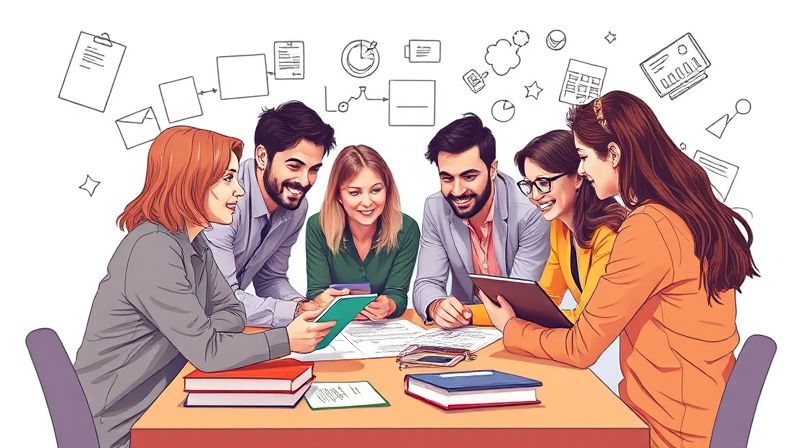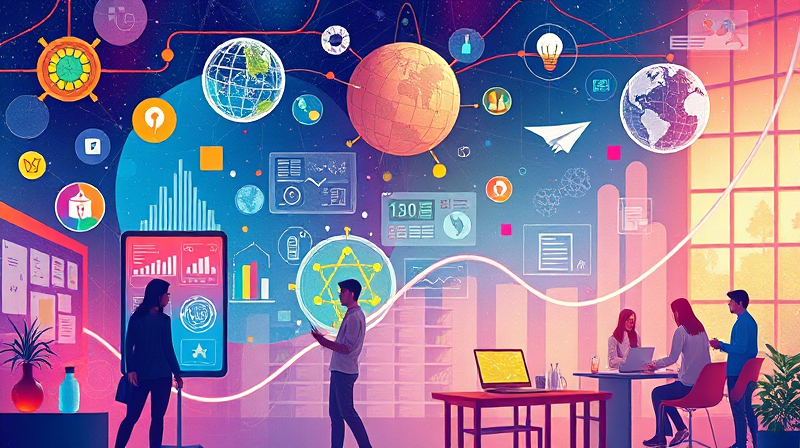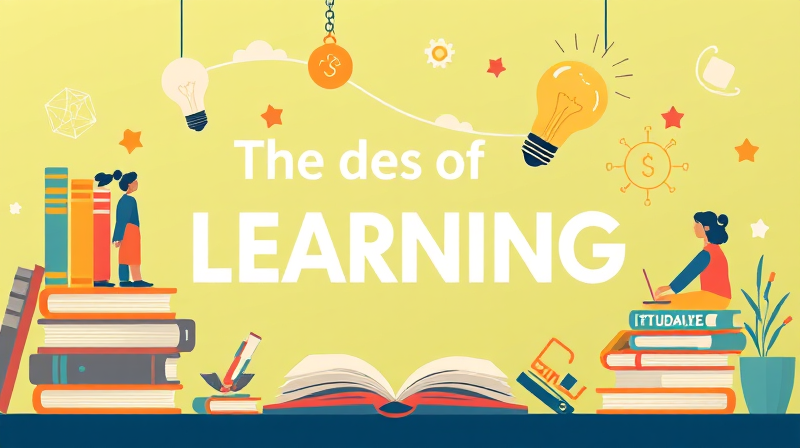As the landscape of education and professional development continues to evolve, team-based study sessions and shared knowledge initiatives have become critical for success. Many institutions and companies are increasingly recognizing the value of collaboration, and a well-organized team can work wonders in enhancing understanding and creativity. This article explores effective strategies that you can use for creating dynamic study groups and fostering an environment of learning and innovation.
Team-based study sessions are not just about meeting in a physical space; they are about creating a structured, supportive, and positive environment where every participant can contribute. As we approach upcoming trends in education and business, teams that build on shared strengths and encourage collective problem-solving are the ones that excel.
Effective Study Group Techniques
The foundation of any successful study group is to create a team that is both diverse and complementary in skills. Forming an optimal study group is essential. A group of 3-5 members ensures that different perspectives are shared while still keeping discussions focused. It is important to schedule study sessions of 1-3 hours to prevent burnout and maintain concentration throughout the meeting.
Preparation and organization are vital before each meeting. Every member should strive to come prepared by reviewing the material, identifying areas of difficulty, and determining topics of interest. Appointing a group leader or facilitator ensures that the session remains on track and that discussions are evenly distributed among team members.
When planning your session, choosing an appropriate format is key. Effective formats include using professor-provided study guides, tackling end-of-chapter questions from textbooks, or assigning each member a specific topic or chapter to present. Sometimes, round-robin discussions where every team member contributes can help identify gaps in understanding. Using these techniques not only reinforces individual knowledge but also enables the group to cover a broader range of topics in depth.
- Study Guides: Leverage material provided by experts to streamline your study process.
- Textbook Questions: Tackle end-of-chapter queries to reinforce key concepts.
- Topic Presentations: Allow each member to explain different parts of the curriculum.
- Round-Robin Discussions: Facilitate equal participation from all team members.
Another helpful strategy is to select a suitable meeting place. A well-lit, quiet, and technology-friendly environment such as dedicated study rooms or reserved conference areas can make a big difference. Whether you are meeting in person or virtually, the right location sets the stage for productive discussions.
Innovative Team Building Activities
To complement traditional study sessions, it is essential to incorporate innovative team building activities that promote fun and interactivity. With the rise of remote and hybrid work environments, exploring virtual team-building exercises can bridge geographical distances. Virtual coffee breaks, online escape rooms, and trivia games not only create a relaxed atmosphere but also enhance communication skills.
Skill development should also be at the forefront of your team activities. Engaging in hackathons, murder mysteries, or reverse engineering challenges can sharpen creative thinking, problem-solving, and critical analysis skills. These activities encourage team members to look at problems from different angles and collaborate to develop groundbreaking solutions.
- Virtual Escape Rooms: Promote collaboration through fun, problem-solving challenges.
- Skill Workshops: Foster a learning environment with tasks designed to develop workplace skills.
- Innovation Challenges: Engage in creative projects like the Paper Tower Challenge or The Innovator's Pitch.
Collaborative innovation challenges such as the Paper Tower Challenge, Puzzle Exchange, and Innovator's Pitch further contribute to team dynamics. These activities allow each member to showcase their creativity while simultaneously building trust and open communication among the group.
Knowledge Sharing Strategies
Lunch and Learn sessions are an excellent way to boost shared knowledge. During these informal meetings, team members present on topics they are passionate about, providing insights that might be new to other members. This initiative not only builds a common knowledge base but also increases team morale and engagement.
Conducting structured workshop collaborations is another effective strategy. In these workshops, team members collectively solve problems, brainstorm ideas, and generate creative solutions. These sessions ensure that every voice is heard and can lead to breakthroughs that might not be achieved individually.
Engaging in group storytelling exercises can also be a fun and creative way to share experiences and ideas. Storytelling builds empathy among team members and creates a strong sense of community while tapping into the collective creativity of the group.
Promoting Psychological Safety and Continuous Growth
One of the most critical aspects of successful team-based study sessions is ensuring that members feel psychologically safe. Creating an environment where individuals can express themselves without fear of failure or judgment encourages risk-taking and bold, innovative thinking. Trust among members strengthens the team’s capacity to address challenges and inspires a culture of open collaboration.
Understanding that team building and knowledge sharing is an ongoing process is essential. Continuous growth is achieved through regular follow-up workshops and access to resources that keep everyone’s skills sharp and minds engaged. This approach ensures that the momentum established during initial sessions is maintained and further built upon in future meetings.
By incorporating these strategies, you can create study sessions that are not only productive but also enjoyable and inspiring. The benefits of these collaborative processes extend beyond academic or professional achievements, fostering a community where every member feels valued and supported.
As the trends toward team-based learning and shared knowledge continue to evolve, it is clear that embracing these innovative methods will prepare teams for both current challenges and future opportunities. The combination of well-organized study sessions, engaging team building activities, and a commitment to lifelong learning creates a resilient and adaptable team ready to meet the demands of a rapidly changing world.
Embrace these ideas to transform your study sessions into powerful learning experiences that drive progress and ignite passion for growth. Remember that each step taken in building a collaborative environment is a step towards unlocking the full potential of your team.







